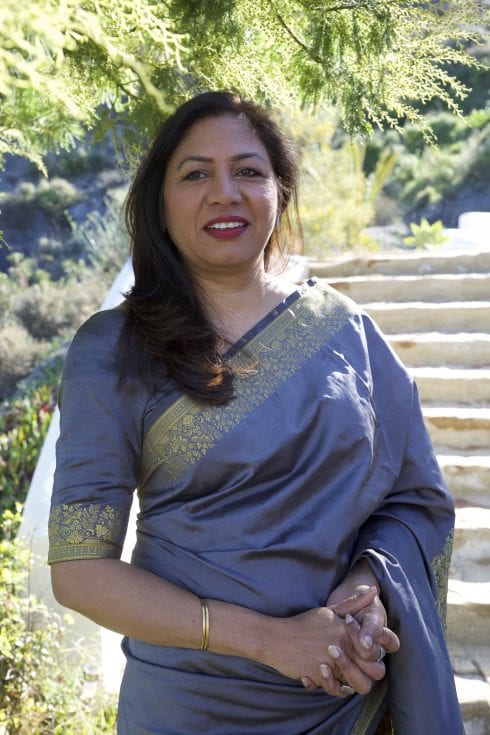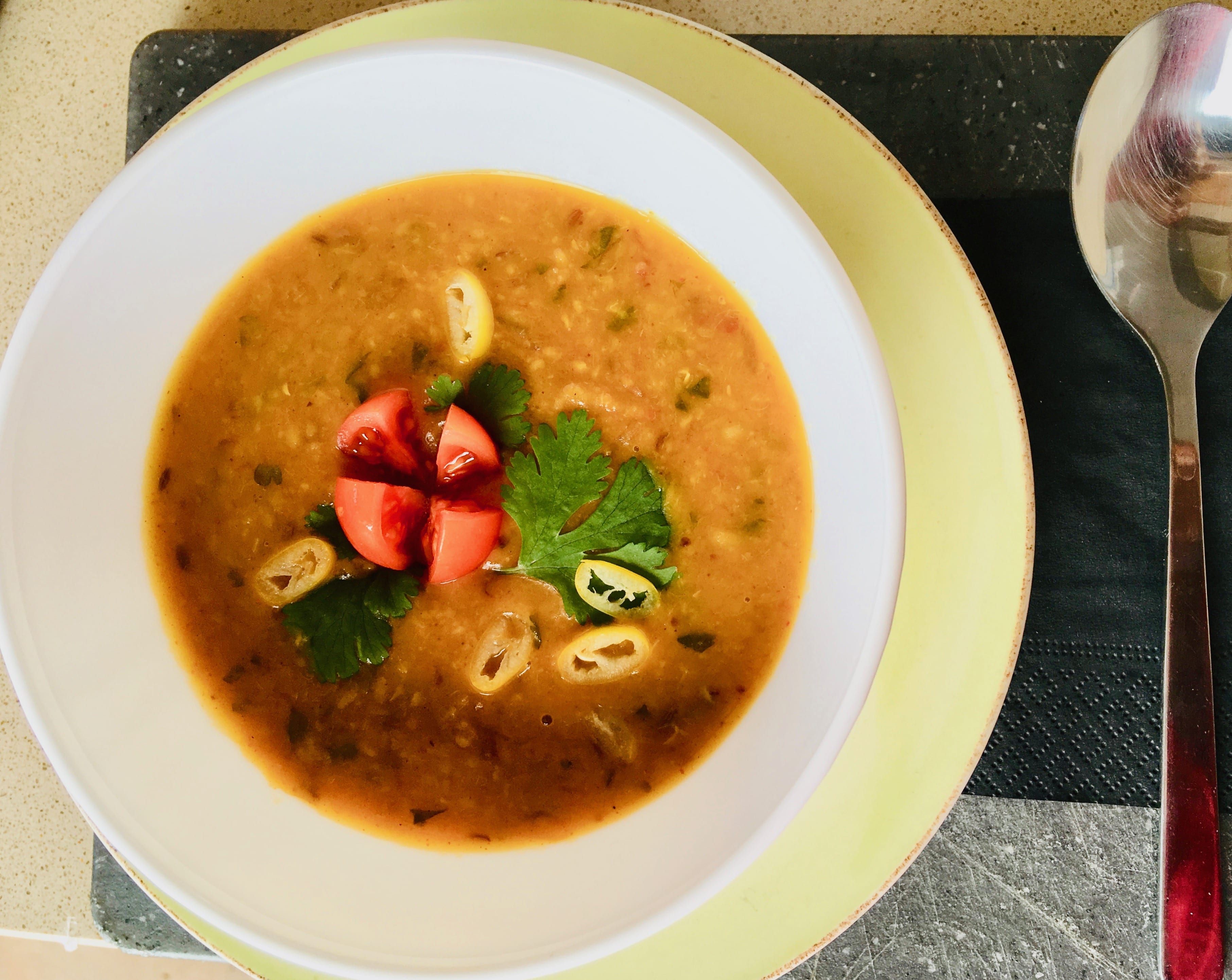
DID you overdo the comfort food eating this winter … on top of the usual festive season blowout?
Now that the chillier months are nearly over it’s a good time to put a spring back in your step with a detox diet.
Being Indian, I naturally turn to the Ayurvedic healing system which originates from my homeland and is thought to be one of the world’s oldest ‘body-mind’ cleansing systems.
Our natural state is health, balance, and happiness, according to Ayurveda, but from time to time toxins enter our body or mind to interfere with that natural state.
They can be physical toxins found in our food, personal and household products, air, water, and other elements of our environment; or emotional toxins such as negative thought patterns and beliefs, self-criticism, chronic stress and other painful experiences.

Ayurveda therefore recommends detoxifying on a regular basis to eliminate damaging elements and return to our innate state of health and well-being.
Although fasting is one of the best detox methods – and one that I use regularly – we can achieve similar results just by simplifying our diet for three days (or longer if you can).
This allows our body to redirect its energies to rid itself of toxins that have built up.
READ MORE:
- Is bar-hopping in San Sebastian as good as its three Michelin star restaurants?
- EXCLUSIVE: World’s first carnivore retreat is coming to Spain’s Andalucia
- Spanish vineyards send as much wine as possible to UK before Brexit
For a detox diet we need foods that come from the vegetable kingdom – freshly harvested and low in calories as opposed to foods that are packed, come from animals and are high in calories.
As our digestion is strongest when the sun is brightest, it’s best to eat our largest meal at noon, and have a light dinner when the sun goes down, such as a vegetable soup.

Other ‘musts’ are to stay hydrated. Drink lots of water to flush out toxins, (around eight glasses a day).
Also try to include the six Ayurvedic tastes (sweet, salty, sour, pungent, bitter, and astringent) in every meal, along with healthy oils – for example a combination of sesame seeds and raisins.
Ginger tea is recommended as a purifier and digestive system booster and there are many other great detox foods you can try on my list below:
Detox: all you need to know
TO TRY:
•Lentil soup
• Kitchari (savoury porridge made with rice and lentils)
• Light vegetable soups
• Steamed or sautéed broccoli, carrots, zucchini, asparagus, Brussels sprouts, cabbage and beets
• Lightly steamed greens such as spinach, chard, and beet greens
• Basmati rice, quinoa, millet, and barley
• Spices such as ginger, cumin, coriander, and fennel
• Flaxseeds, sesame seeds, sunflower seeds, and pumpkin seeds
• Poached apples and pears; cooked apricots, prunes, and figs
• Fresh berries – raspberries, blackberries, blueberries
TO AVOID:
• Animal and dairy products (clarified butter, or ghee, is fine in small amounts)
• Refined sugar and flour products
• Canned, leftover, processed and microwaved foods
• Fermented foods, including pickles and vinegar
• Cold and raw foods
• Fried foods
• Alcohol
• Caffeine
• Chocolate

To complete the detox, set aside time for at least 20 minutes of vigorous exercise daily – enough to leave a fine film of sweat on the skin to eliminate toxins.
Hot baths and saunas also help!
I normally go to Casona Granado’s wonderful sauna while I work on the menus there.
At the same time as cleansing our bodies, we need to detox our minds too, by limiting use of electronic media and turning to activities that nurture our senses.
TV viewing and social media create emotional toxins.
Get outside, read a book, do a creative or physical activity or simply sit and meditate.
I hope you have enjoyed delving a little into the Ayurvedic detox tradition and feel inspired to try it yourself.
To help you on your way, here’s a delicious recipe for lentil soup that can be a mainstay of your detox program. Enjoy and happy cleansing!
Detox lentil soup
Serves 4 to 6

This lentil soup is an all-time favourite in northern Indian cuisine. It is light, tasty and nourishing and a source of easily digested proteins. It is also comfort food for winter as it fills you nicely and is easy to make. In my family home every day in winter we always enjoyed some kind of lentil soup. This is very alkaline in nature so it’s a good food while you are on a detox program.
INGREDIENTS:
• 1 cup of mung bean lentils
• 4 cups of water
• 1 small chopped onion
• 1 inch chopped ginger
• 2-3 cloves of garlic chopped
• 1 hot green chilli chopped (optional)
• Juice of half a lemon
• Black pepper to taste
• Salt to taste
• ½ teaspoon cumin seeds
• ½ teaspoon black mustard seeds (optional)
• ½ teaspoon turmeric powder
• ½ teaspoon Garam masala
• 1 tablespoon ghee (clarified butter) or coconut oil
• 1 pinch of asafetida
• 10 grams of fresh chopped coriander leaves
METHOD:
Wash the lentils, rubbing them gently until the water runs clear. Leave them to soak while you prepare the rest.
In a pan heat ghee or coconut oil and add the cumin seeds and black mustard seeds and wait till they start to crackle. Add chopped onions and sauté till they are translucent. Add chopped ginger and garlic. Stir fry until golden brown.
Add the rest of the spices and the soaked lentils. Let them cook for 30 minutes, stirring them occasionally if you are using a normal pan, or for 10 minutes after the first whistle if you are using a pressure cooker.
Once the lentils are done, take them off the heat and add the lemon juice.
Decorate them with chopped coriander leaves. Your lentils are ready for serving hot with naans, chapatis or rice.
Manna Teji is an Indian chef living in Mojácar who is passionate about vegetarian food. Continuing her vegetarian food series, here she shares the benefit of a detox diet, Indian style, along with one of her tasty vegan recipes. Manna welcomes questions on the topic of food and health, especially vegetarianism and veganism, so feel free to contact her at mannateji@hotmail.com or follow her Facebook page, ‘Manna’s Lifestyle’.








